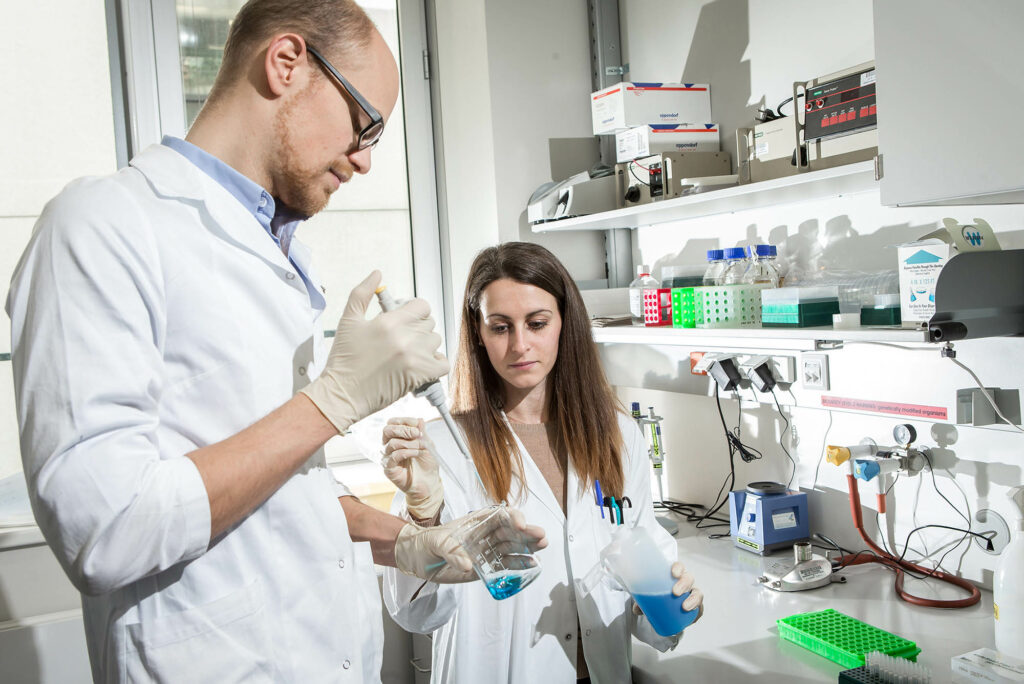People are eating the equivalent of one credit card every week in their diet, a new study into the effects of plastic particles on human health has revealed.
The particles enter the human food chain through plastic waste contained in fish, sea salt and even drinking water, the study shows.
Scientists say the nanoplastics disrupt the human gut bacteria and can lead to killer diseases like cancer and diabetes.
The research – by the Medical University of Vienna in the Austrian capital – reveals the consequences of plastic nanoparticle pollution in the human digestive system.
The study says that the average person consumes approximately five grammes (0.18 oz) of plastic every week, “roughly equivalent to the weight of a credit card”.

(MedUni Vienna/Newsflash)
The study, which also summarises the current state of scientific knowledge on the subject, states that ingesting plastic nanoparticles has adverse effects on human health, although the full extent of this is currently unknown.
The experts did say that so far, scientific knowledge on the subject shows that absorbing plastic via the gastrointestinal tract leads to changes in the composition of the gut microbiome, which is made up of trillions of useful microbes, fungi and bacteria.
This, in turn, reportedly has negative effects on the human body, which have been associated with the development of metabolic diseases such as diabetes, chronic liver disease and obesity.
The scientists said that there are molecular mechanisms that make it easier for micro- and nanoplastic particles (MNPs) to be absorbed by the human body and that these can trigger or contribute to the development of inflammations and immune system reactions.
They also said that, specifically, nanoplastics play a key role in the development of cancer.
A piece of nanoplastic is typically defined as measuring less than 0.001 millimetres in size, while microplastics might still sometimes be visible with the naked eye.
These particles enter the food chain via waste resulting from packaging, but they do not enter the human body via food alone. As well as entering the human body via marine life or sea salt, the experts said that drinking also plays a role.

(MedUni Vienna/Newsflash)
People who drink the recommended amount of 1.5 to 2 litres of water per day from plastic bottles ingest approximately 90,000 plastic particles per year as a result, while people who drink tap water can reduce this amount to 40,000 plastic particles a year.
But they stressed that this largely depended on people’s geographical location. Austria is said to have some of the best tap water in the world.
Lukas Kenner, of the Clinical Institute of Pathology at the Medical University of Vienna and one of the study’s authors, said that the ingestion of plastic particles can adversely affect people with chronic diseases. He said: “A healthy gut is more likely to ward off the health risk. But local changes in the gastrointestinal tract, such as those present in chronic disease or negative stress, may predispose to the deleterious effects of MNP.”
The research team was led by Elisabeth Gruber of the Division of Visceral Surgery at the Medical University of Vienna’s Department for General Surgery and Lukas Kenner of the Department of Pathology.
The study was published in the academic journal Exposure & Health on Thursday, 24th March.
To find out more about the author, editor or agency that supplied this story – please click below.
Story By: Joseph Golder, Sub-Editor: William McGee, Agency: Newsflash
The Ananova page is created by and dedicated to professional, independent freelance journalists. It is a place for us to showcase our work. When our news is sold to our media partners, we will include the link here.




